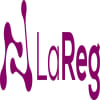Dive Brief:
- Consumers for Smart Solar (CSS), a political action committee funded by electric utilities that is working toward getting a constitutional amendment on Florida’s 2016 ballot which could affect distributed solar in the state, has obtained 540,496 of the 683,149 verified petition signatures it needs by February 1.
- With over 300,000 more signatures now being verified by state election officials, the measure seems likely to qualify for the November election ballot, the Daily Business Review reports. If 60% of voters support the proposal, should it make the ballot, it would become Florida law.
- CSS was formed in response to an effort by Floridians for Solar Choice (FSC), a clean energy advocacy group, to legalize the third party owned (TPO) solar leasing that has driven distributed solar growth in other states. FSC, looks unlikely to obtain enough signatures to qualify for the 2016 ballot, says the CSS law would not advance Florida solar.
Dive Insight:
FSC announced last month that it is “exploring options for 2018” after a payment dispute with a consulting firm hired to secure signed petitions left it short of the required number of signatures, which is 10% of voters in the last general election.
FSC has been called a Green Tea coalition because it includes the Tea Party Network, Republican conservatives, the Sierra Club, and the Southern Alliance for Clean Energy (SACE).
“We are trying to open up the market so Florida’s families and businesses will have the option of powering their homes and workplaces with solar power,” SACE Action Fund Florida Energy Policy Attorney George Cavros told Utility Dive.
CSS is a coalition featuring former Democratic and Republican state legislators, several Florida Chambers of Commerce, and the state's electric utilities. It is supported by $595,000 from Florida Power & Light, $355,000 from Duke Energy, and $556,000 from Tampa Electric Co., along with other major donations.
The FSC proposal is designed to "limit or prevent government and electric utility imposed barriers to supplying local solar electricity." It would legalize third party ownership of distributed solar in Florida and allow customers with systems of 2 MW or less to sell electricity directly to other consumers.
The CSS proposal would establish a constitutional right in Florida for customers "to own or lease solar equipment installed on their property to generate electricity for their own use," according to the official summary of the ballot measure. It would not, however, legalize third party ownership, a major priority of solar installers in the state.













